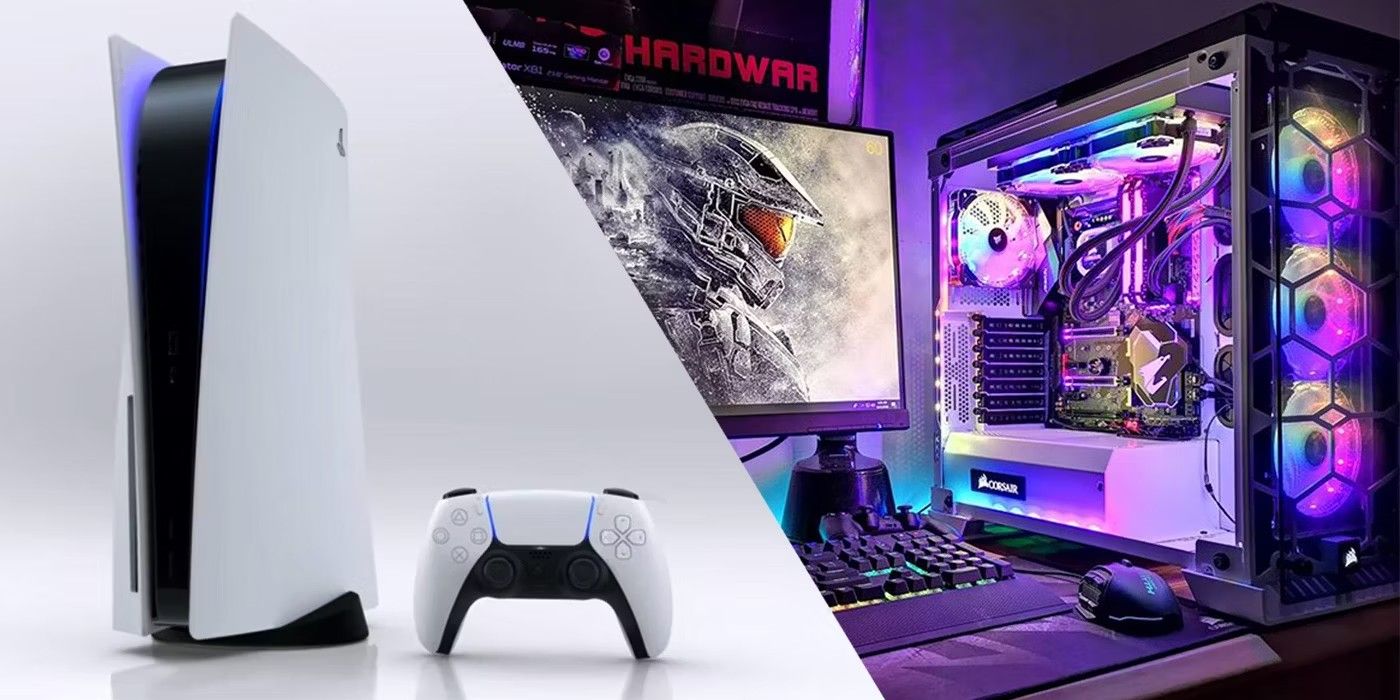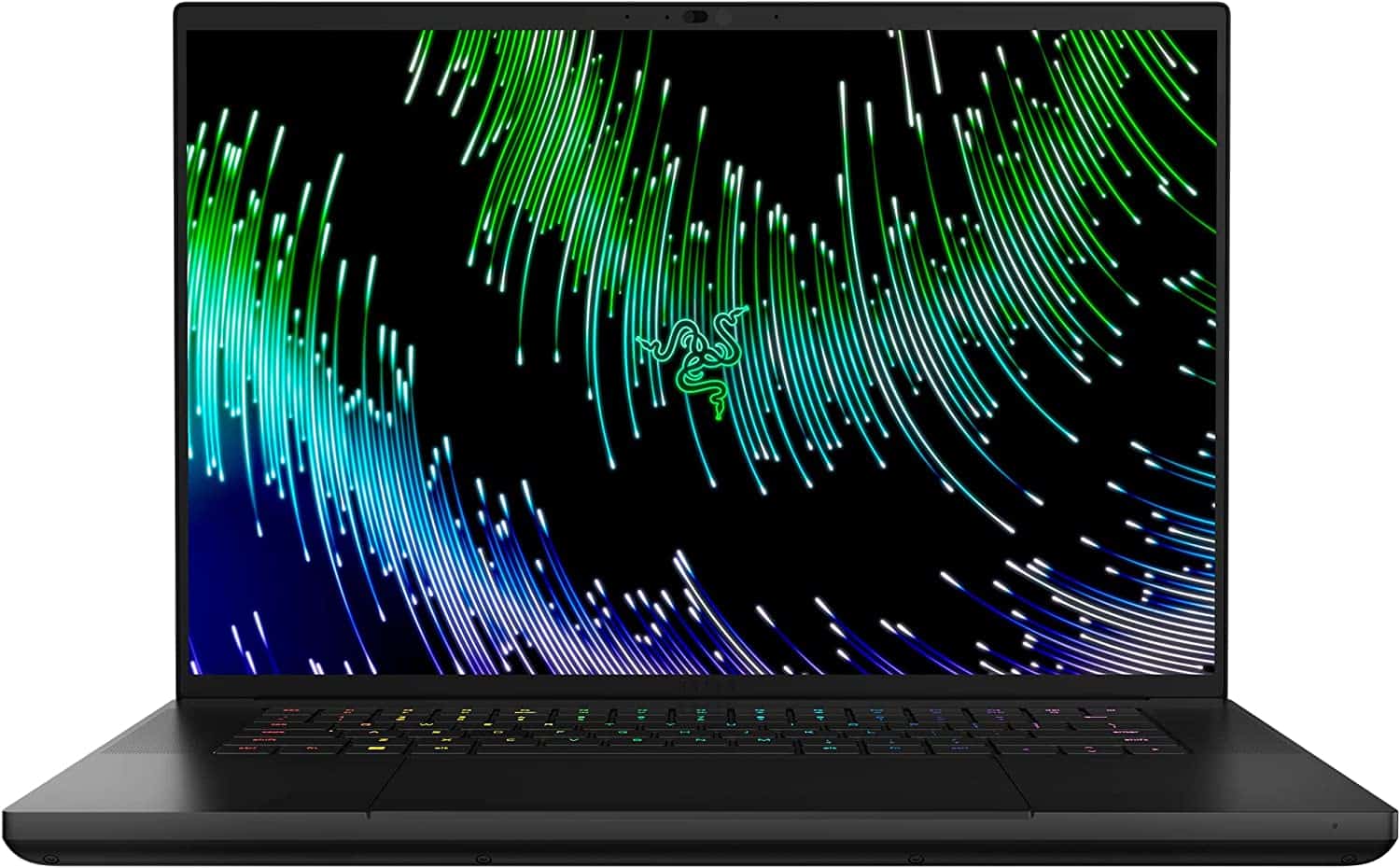PC vs gaming console has been a long-standing debate in the gaming community. While both options have their own set of advantages and disadvantages, it ultimately comes down to personal preference and gaming needs. If you’re leaning towards PC you don’t want to miss our article about The Best Gaming PC Under $1000: Top 5 Cut-Rate Options.
One of the biggest advantages of gaming consoles is their ease of use. With a console, you can simply plug it in, turn it on, and start playing. There’s no need to worry about hardware compatibility, driver updates, or other technical issues that can arise with a PC. Additionally, consoles are typically more affordable upfront, making them a great option for those on a budget. Our readers also enjoyed reading about The Best Wireless Gaming Mouse: Top 5 Picks for Optimal Performance and Best Mouse Pad for Gaming: Top Picks for Enhanced Precision and Control.
On the other hand, gaming PCs offer a level of customization and flexibility that consoles simply can’t match. With a PC, you can upgrade individual components as needed to keep up with the latest games and technology. You also have access to a wider range of games and can often take advantage of sales and discounts on digital game downloads. Overall, the choice between a PC and console ultimately comes down to your gaming preferences and budget.

Understanding The Basics Of PC VS Gaming Consoles
When it comes to gaming, there are two main options: PC or console. Both have their own advantages and disadvantages, and it ultimately comes down to personal preference. In this section, we’ll cover the basics of PC and console gaming to help you make an informed decision.
PC Gaming Essentials
PC gaming is all about customization and flexibility. With a gaming PC, you have the ability to upgrade individual components to improve performance, such as the CPU, GPU, and RAM. This means that you can keep your PC up-to-date with the latest hardware without having to buy a whole new machine.
Another advantage of PC gaming is the wide range of games available. While consoles have their own exclusive titles, PC games are often available on multiple platforms. Additionally, PC games tend to have more modding support, which allows players to modify the game to their liking.
However, there are some downsides to PC gaming. For one, building a gaming PC can be expensive, especially if you want top-of-the-line components. Additionally, PC games can be more demanding on hardware, which means that you may need to upgrade more frequently to keep up with the latest titles.
Console Gaming Essentials
Console gaming, on the other hand, is all about ease of use and affordability. With a console, you simply plug it in, connect to the internet, and start playing. Console games are optimized for the specific hardware, which means that they often run smoother and look better than their PC counterparts.
Another advantage of console gaming is the affordability. While a gaming PC can cost thousands of dollars, consoles are often priced around $300-$500. Additionally, console games tend to be cheaper than PC games, especially when you consider the cost of hardware.
However, there are some downsides to console gaming as well. For one, you don’t have the same level of customization as you do with a gaming PC. Additionally, console games often have limited modding support, which means that you can’t modify the game to your liking as easily.
Overall, both PC and console gaming have their own strengths and weaknesses. It ultimately comes down to what you value more: customization and flexibility, or ease of use and affordability.
Hardware and Performance
When it comes to gaming, hardware and performance are crucial factors. In this section, we will discuss the differences between gaming consoles and PCs in terms of graphics and resolution, processing power, and storage solutions.
Graphics and Resolution
One of the main advantages of PC gaming is the ability to achieve higher graphics and resolution. PCs offer a wide range of graphics cards that can be upgraded to keep up with the latest games. On the other hand, gaming consoles have a fixed graphics card that cannot be upgraded. While consoles are catching up with PCs in terms of graphics and resolution, they are still behind when it comes to achieving the highest quality.
Processing Power
Processing power is another important factor to consider when comparing gaming consoles and PCs. PCs offer a wide range of CPUs that can be upgraded to improve performance. In contrast, gaming consoles have a fixed CPU that cannot be upgraded. While consoles are optimized for gaming, they are still behind when it comes to processing power compared to PCs.
Storage Solutions
Storage solutions are important for gamers who want to store their games and other media files. PCs offer a wide range of storage solutions, including solid-state drives (SSDs) and hard disk drives (HDDs). SSDs are faster than HDDs and offer faster load times. Gaming consoles also offer storage solutions, but they are limited in terms of storage capacity and speed.
In conclusion, when it comes to hardware and performance, PCs offer more options for customization and upgrading. While gaming consoles are optimized for gaming, they are still behind when it comes to graphics and processing power compared to PCs. PCs also offer a wider range of storage solutions, including faster SSDs.
Game Library & Exclusives
When it comes to gaming, the game library and exclusives are some of the most important factors to consider. In this section, we’ll take a closer look at the game libraries and exclusive titles available on gaming consoles and PCs.
Exclusive Titles
Both gaming consoles and PCs have their own exclusive titles. Xbox One has its own exclusive games such as “Halo 5: Guardians” and “Forza Horizon 3,” while PlayStation has “Uncharted 4: A Thief’s End” and “Bloodborne.” On the other hand, PC has exclusive titles like “Civilization VI” and “StarCraft II.” It’s worth noting that some exclusive games are also available on other platforms after a certain amount of time.
Backwards Compatibility
One advantage that PCs have over gaming consoles is backwards compatibility. PCs can run games from previous generations, while gaming consoles often cannot. However, both Xbox One and PlayStation 4 offer some backwards compatibility. Xbox One has a growing list of Xbox 360 games that can be played on the system, while PlayStation 4 has a limited selection of PlayStation 2 and PlayStation 3 games available through PlayStation Now.
When it comes to game libraries, PCs have a massive advantage over gaming consoles. PC gamers have access to digital storefronts such as Steam and GOG, which offer a vast library of games from various developers and publishers. In contrast, gaming consoles have a more limited selection of games available, and the games tend to be more expensive. PlayStation Plus and Xbox Game Pass offer monthly free games to subscribers, but the selection is limited.
In conclusion, both gaming consoles and PCs have their own exclusive titles, but PCs have a much larger game library thanks to digital storefronts like Steam and GOG. PCs also have the advantage of backwards compatibility, while gaming consoles are more limited in that regard.
Future-Proofing and Upgrades
As technology advances, it’s natural to want a system that can keep up with the latest and greatest games and software. When it comes to future-proofing and upgrades, there are some key differences between PC gaming and console gaming.
PC Upgrades
One of the biggest advantages of PC gaming is the ability to upgrade individual components as needed. Want to improve your graphics card for better performance? Simply swap it out for a newer model. Need more storage space? Add another hard drive. This flexibility allows us to keep our system up to date without having to buy a whole new machine.
Upgrading a PC can be a bit daunting for those who are not tech-savvy, but there are plenty of resources available online to help guide us through the process. Additionally, many PC components are designed to be user-replaceable, making upgrades easier than ever before.
Console Generational Shifts
Console gaming, on the other hand, is typically tied to a specific hardware generation. When a new generation of consoles is released, we need to purchase a whole new system to keep up with the latest games. While this can be expensive, it does ensure that we have access to the latest hardware and software features.
The good news is that console generations tend to last several years, so we have plenty of time to enjoy our current system before needing to upgrade. Additionally, console manufacturers often release mid-generation upgrades, such as the PlayStation 4 Pro and Xbox One X, which offer improved performance and features without requiring a full system replacement.
Overall, both PC gaming and console gaming have their advantages when it comes to future-proofing and upgrades. While PC gaming offers more flexibility in terms of individual component upgrades, console gaming ensures that we always have access to the latest hardware and software features.
Gaming Beyond Play
When it comes to gaming, there’s no denying that both PC and gaming consoles have their pros and cons. However, gaming isn’t the only thing that these devices are capable of. In fact, both PCs and gaming consoles have a wide range of non-gaming functionalities that can be incredibly useful. Here are a few examples:
Non-Gaming Functionalities
Windows Productivity
One of the biggest advantages of a PC is the ability to multitask. While gaming, we can easily switch to other applications or programs, such as a web browser or video editor. This makes it easy to get work done while still enjoying our favorite games. On the other hand, gaming consoles are more limited in terms of multitasking, but they still offer some non-gaming functionalities, such as streaming movies and TV shows.
Gaming Laptops
Gaming laptops offer a unique combination of portability and power. They allow us to play our favorite games on-the-go, while also providing the ability to work on other tasks. Additionally, many gaming laptops come equipped with powerful processors and cooling systems, making them ideal for content creation and professional use.
VR
Virtual Reality (VR) is an exciting technology that’s gaining popularity in both the gaming and non-gaming worlds. While VR gaming is a huge draw for both PC and gaming console users, VR also has a wide range of non-gaming applications. For example, VR can be used for virtual meetings, training simulations, and even therapy.
Content Creation and Professional Use
Video Editing
Video editing is a demanding task that requires a lot of processing power. While gaming consoles can handle basic video editing, a PC is the better choice for more advanced projects. PCs offer a wider range of video editing software and hardware options, making it easier to find the perfect setup for our needs.
Game Developers
For game developers, a PC is the clear choice. PCs offer more flexibility and power when it comes to developing and testing games. Additionally, many game development tools and software are designed specifically for use on a PC.
Processor Speed
Processor speed is a crucial factor for both gaming and non-gaming tasks. While gaming consoles can offer impressive processing power, PCs are generally more powerful and offer more options for upgrading and customizing our setup.
Cooling
Cooling is an important consideration for both gaming and non-gaming use. PCs offer a wider range of cooling options, such as liquid cooling, which can help keep our system running smoothly and prevent overheating.
In conclusion, while gaming is the primary focus of both PCs and gaming consoles, they both offer a wide range of non-gaming functionalities that can be incredibly useful. Whether we’re working on a video project, attending a virtual meeting, or just browsing the web, both PCs and gaming consoles have something to offer.

Frequently Asked Questions
What are the pros and cons of PC gaming compared to console gaming?
PC gaming offers a wider range of games, better graphics, and more customization options compared to gaming consoles. However, gaming consoles are more convenient, user-friendly, and offer a more consistent gaming experience. Additionally, console games are optimized for the specific hardware, which means that games are more likely to run smoothly on consoles.
How do the costs of owning and maintaining a gaming PC compare to a gaming console?
Gaming PCs are generally more expensive than gaming consoles. However, the initial investment in a gaming PC can be offset by the lower costs of games and the ability to upgrade components over time. On the other hand, gaming consoles are generally cheaper upfront, but games are more expensive, and upgrading components is not possible.
What are the performance differences between PC gaming and console gaming?
PC gaming generally offers better performance than console gaming. PCs can achieve higher frame rates, better graphics, and more stable performance compared to consoles. However, gaming consoles offer a more consistent gaming experience, as games are optimized for the specific hardware.
Which platform is more beginner-friendly, PC or gaming consoles?
Gaming consoles are generally more beginner-friendly than PCs. They have a simpler user interface, and games are easier to install and play. Additionally, gaming consoles are more plug-and-play, meaning that users can simply connect the console to a TV and start playing. However, PCs offer more customization options and can be tailored to the user’s preferences over time.




